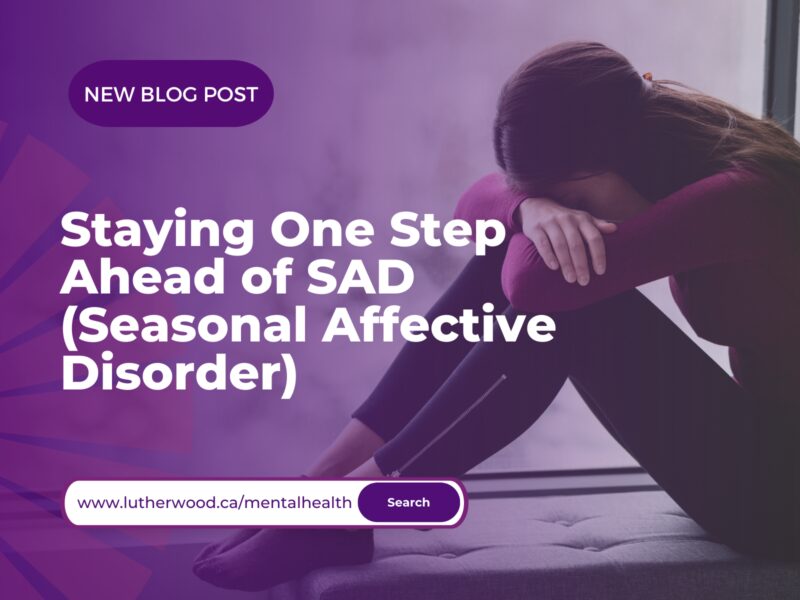Staying One Step Ahead of SAD (Seasonal Affective Disorder)

If you or your child are part of the roughly 5% of the population that experiences Seasonal Affective Disorder (SAD), you may be well aware of its telltale signs and symptoms. You probably already see them creeping back into your lives this month.
As familiar as you may be with the affect it has this time of year, it can be hard to know what to do other than brace for the change. By better understanding the early symptoms, how they can manifest, and what you can do to improve your mood, you and your family will be able to take positive steps to stay in better spirits this winter.
It is important to recognize that shifts in mood, sleep schedule, productivity and focus aren’t your fault or from a lack of motivation, but a symptom of fluctuating melatonin and serotonin levels in your brain from reduced daylight. The more sunlight you get, the more serotonin your brain creates, which helps you to feel happy and energetic. The less sunlight you’re exposed to, the more melatonin your brain makes, which can make you feel sleepy, lethargic and sad.
Some simple ways to combat this are to spend as much time outside in the daylight as possible, and to find other ways to create serotonin in your body, like listening to music that makes you happy, eating healthy foods, learning something new or writing a gratitude journal.
Check out these past Lutherwood Blogs for more information on Finding Joy in the Every Day During SAD, Coping With and Managing SAD and Creating Playlists to Boost your Mood.
Connecting with others and trying new things can also help, so you can check out this list of Local Holiday Events coming up this season.
It is also important to remember that there are varying levels of Seasonal Affective Disorder, and these strategies can help you and your child feel better throughout the winter, even if you don’t suffer from seasonal depression.
If you are a parent or caregiver supporting a child or youth who is struggling with mental health, and require additional assistance please reach out to Front Door with concerns or questions.
Instagram Feed
Our blend of compassion and expertise transforms lives, giving children the tools they need to build brighter and promising futures. But this life-changing care depends on your support.












